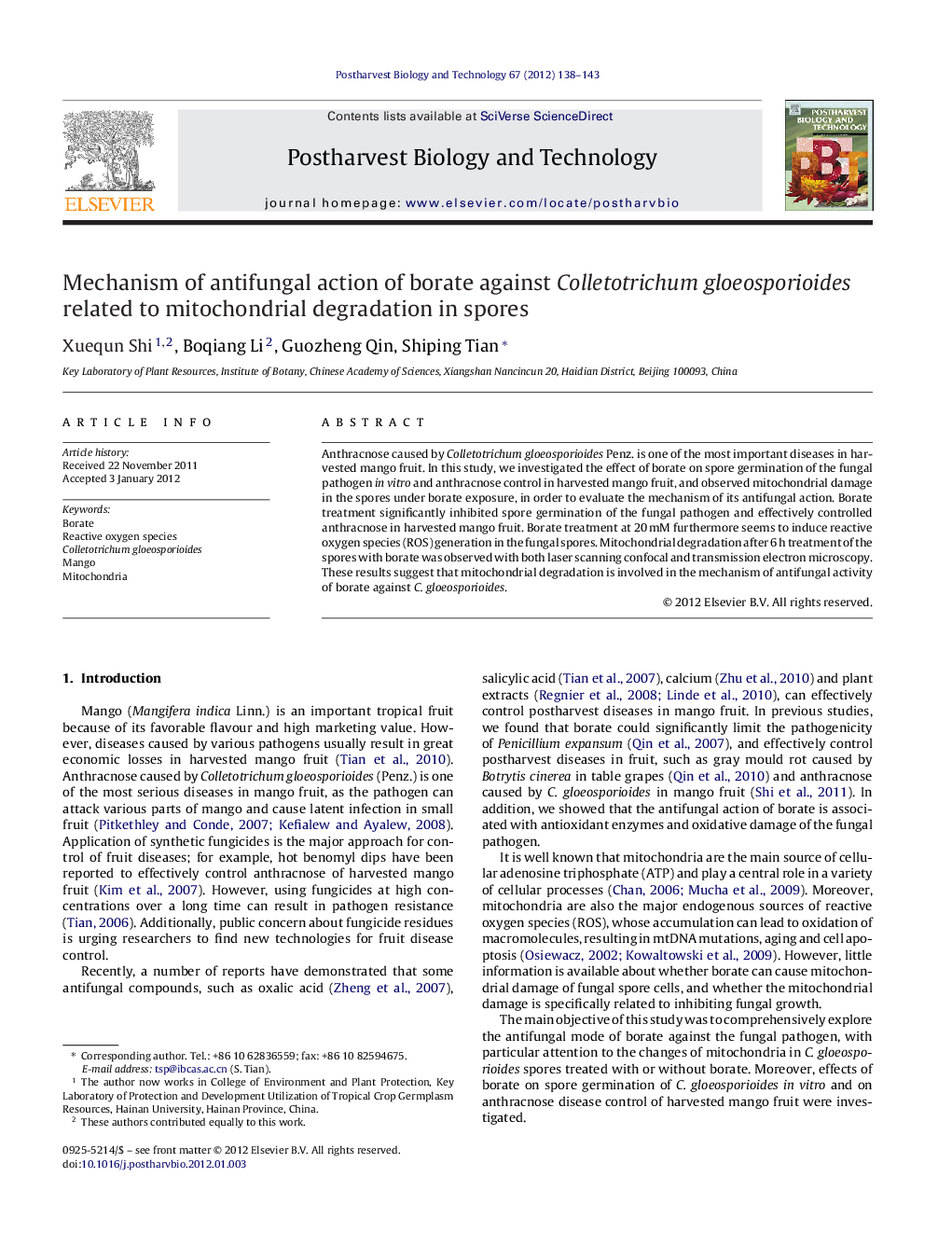| Article ID | Journal | Published Year | Pages | File Type |
|---|---|---|---|---|
| 4518762 | Postharvest Biology and Technology | 2012 | 6 Pages |
Anthracnose caused by Colletotrichum gloeosporioides Penz. is one of the most important diseases in harvested mango fruit. In this study, we investigated the effect of borate on spore germination of the fungal pathogen in vitro and anthracnose control in harvested mango fruit, and observed mitochondrial damage in the spores under borate exposure, in order to evaluate the mechanism of its antifungal action. Borate treatment significantly inhibited spore germination of the fungal pathogen and effectively controlled anthracnose in harvested mango fruit. Borate treatment at 20 mM furthermore seems to induce reactive oxygen species (ROS) generation in the fungal spores. Mitochondrial degradation after 6 h treatment of the spores with borate was observed with both laser scanning confocal and transmission electron microscopy. These results suggest that mitochondrial degradation is involved in the mechanism of antifungal activity of borate against C. gloeosporioides.
► Antifungal action of borate against Colletotrichum gloeosporioides was investigated. ► Borate treatment could induce accumulation of ROS in C. gloeosporioides spores. ► Borate treatment caused mitochondrial degradation in C. gloeosporioides spores. ► Borate treatment effectively reduced lesion diameter of anthracnose in mango fruit.
